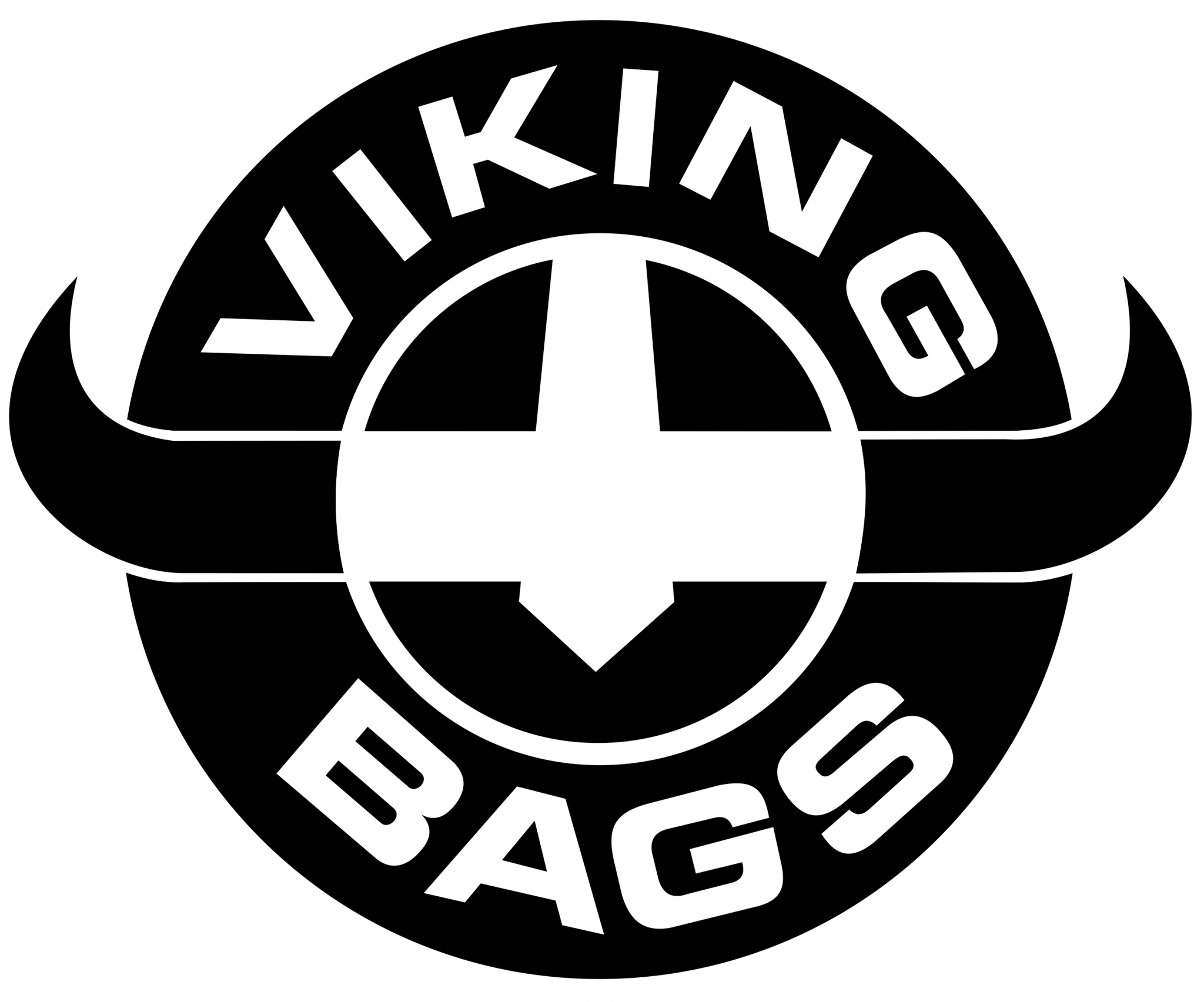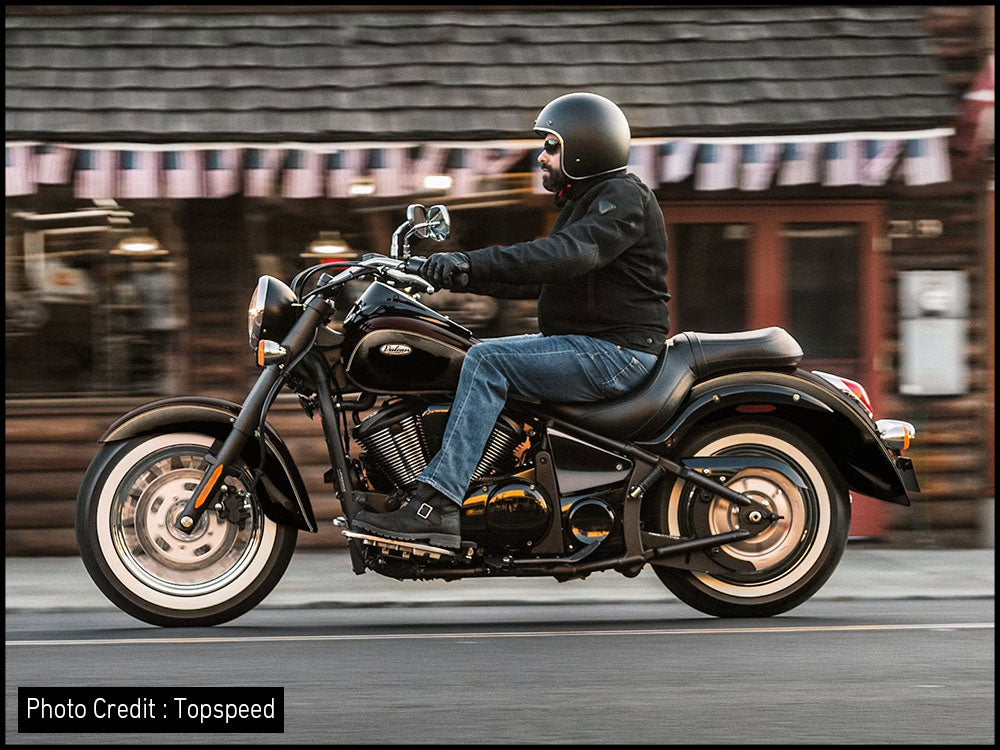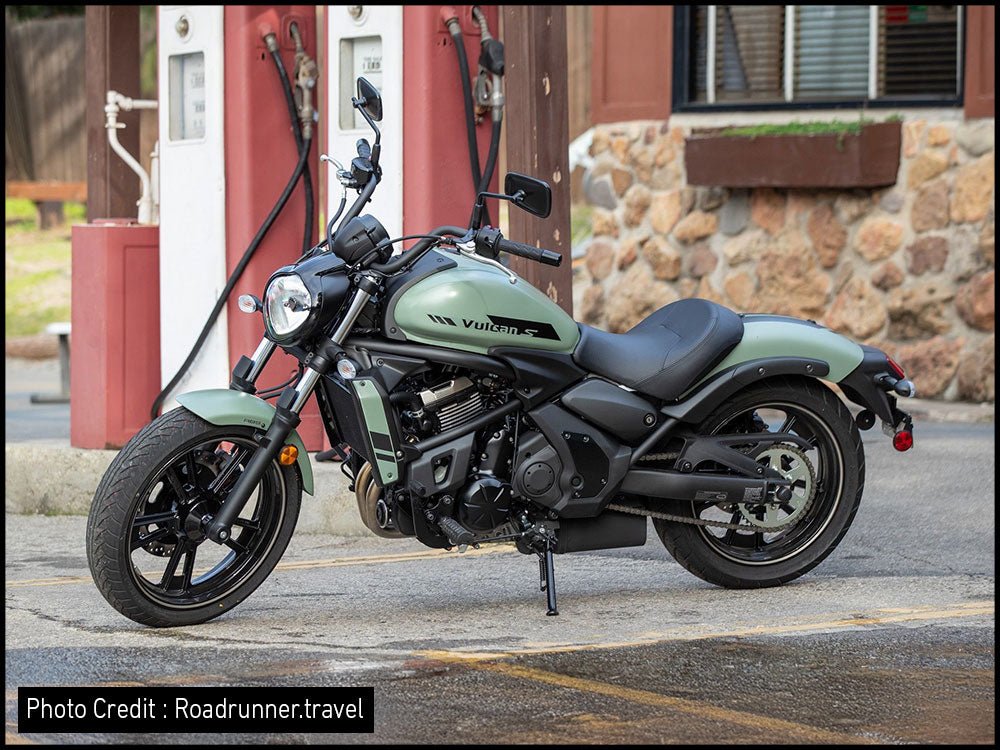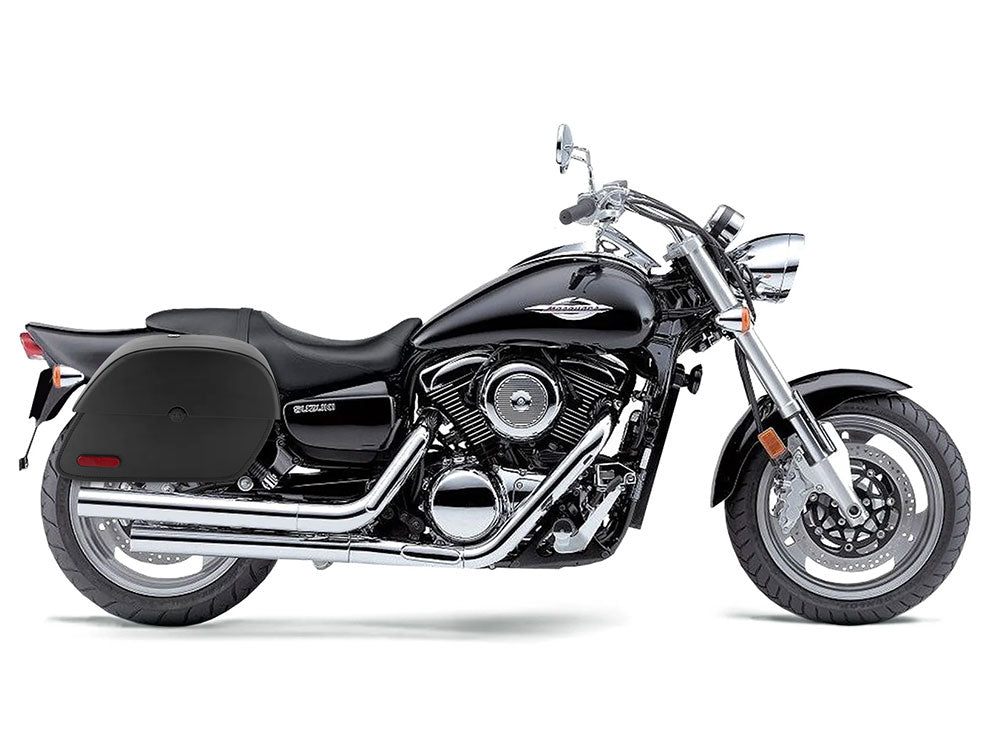Table of Content
Kawasaki has redefined the art of motorcycling with its high-performance cruisers. Every year, a more stunning Kawasaki model sizzles the showroom floors before ruling the urban streets, highways, and camping sites.
With its affordable and beginner-friendly cruisers, Kawasaki has allowed many young bikers to fulfill their dreams of riding a well-designed classic cruiser.
The motorcycle company entered the cruiser game with its Vulcan 750 VN lineup. After a 22-year-long production run, the Vulcan 750 series was discontinued in 2006. But, the same year, Kawasaki launched its Vulcan 900 Classic lineup, which was far more stylish and powerful.
Read on to find out all the necessary information about the Kawasaki Vulcan 900 Classic cruiser, including its evolution, specifications, features, and price.
1. A Brief History of Kawasaki Vulcan 900 Classic
The Kawasaki Vulcan 900 series was launched in 2006. Initially, the bike had only two variations: the Vulcan 900 Classic and the Vulcan 900 LT.
In 2007, the Vulcan 900 Custom cruiser was added to the 900 series. The three variations share the same engine configurations, technical specifications, drive train, and performance figures.
The noteworthy differences between the three variants are listed in the table below.
| Main Differences | Vulcan 900 Classic | Vulcan 900 LT | Vulcan 900 Custom |
|---|---|---|---|
| Length | 97.0 in | 97.0 in | 95.7 in |
| Width | 39.6 in | 39.6 in | 35.2 in |
| Height | 41.9 in | 58.3 in | 44.1 in |
| Seat Height | 26.8 in | 26.8 in | 27.0 in |
| Ground Clearance | 5.3 in | 5.3 in | 5.5 in |
| Curb Weight | 619.6 lbs | 657.1 lbs | 610.8 lbs |
| Front tire | 130/90-16 M/C | 130/90-16 M/C | 80/90-21 M/C |
| Trail | 6.3 in | 6.3 in | 7.2 in |
| Windshield | Absent | Present | Absent |
| Saddlebags | Absent | Present | Absent |
| Backrest | Absent | Present | Absent |
| Foot Position | Floorboards with heel/toe shifter | Floorboards with heel/toe shifter | Footpegs |
| Other styling details | Chromed parts | Chromed parts | Blacked out parts |
Though the three variations of the Kawasaki 900 series had some distinct features, the Kawasaki 900 Classic lineup didn’t undergo many changes.
The 2006 to 2012 Vulcan 900 Classic models produced a peak torque of 50.0 hp at 5700 rpm and a peak torque of 82 Nm at 3700 rpm. The Vulcan 900 Classic series remained the middleweight cruisers with the largest displacement till 2008. With the introduction of Yamaha’s V-Star 950 cruiser, the Vulcan 900 Classic no longer has that laurel to its name.
In 2013, the peak torque and horsepower were reduced to 78 Nnm at 3700 rpm and 48 hp at 5700 rpm respectively. The main reason behind the reduction in torque and horsepower is not known. Moreover, there were slight changes in the paint schemes over the years.
Here is a quick overview of the most recent Vulcan 900 Classic models.
| Model Year | Base Price | Colors |
|---|---|---|
| 2006 Kawasaki Vulcan 900 Classic | $7,299 | Ebony Metallic Ocean Blue Galaxy Silver Candy Fire Red |
| 2007 Kawasaki Vulcan 900 Classic | $7,349 | Candy Caribbean Blue Metallic Titanium Ebony Candy Cardinal Red |
| 2008 Kawasaki Vulcan 900 Classic | $7,349 | Candy Caribbean Blue Metallic Titanium Ebony Candy Cardinal Red |
| 2009 Kawasaki Vulcan 900 Classic | $7,499 | Metallic Diablo Black Candy Diamond Red Candy Plasma Blue |
| 2010 Kawasaki Vulcan 900 Classic | $8,149 | Candy Imperial Blue Candy Fire Red |
| 2011 Kawasaki Vulcan 900 Classic | $8,199 | Ebony |
| 2012 Kawasaki Vulcan 900 Classic | $8,299 | Candy Arabian Red Pearl Meteor Gray/Polar White |
| 2013 Kawasaki Vulcan 900 Classic | $8,699 | Pearl Flat Stardust White/Flat Ebony |
| 2014 Kawasaki Vulcan 900 Classic | $7,999 | Ebony/Metallic Graphite Gray |
| 2015 Kawasaki Vulcan 900 Classic | $7,999 | Metallic Matte Carbon Gray/Pearl Flat Crystal White |
| 2016 Kawasaki Vulcan 900 Classic | $7,999 | Metallic Imperial Red/Metallic Graphite Gray |
| 2017 Kawasaki Vulcan 900 Classic | $7,999 | Metallic Graphite Gray/Metallic Spark Black |
| 2018 Kawasaki Vulcan 900 Classic | $7,999 | Metallic Matte Graphite Gray/Metallic Matte Carbon Gray |
| 2019 Kawasaki Vulcan 900 Classic | $7,999 | Metallic Matte Graphite Gray/Metallic Matte Carbon Gray |
| 2020 Kawasaki Vulcan 900 Classic | $7,999 | Phantom Blue/Pearl Blizzard White |
| 2021 Kawasaki Vulcan 900 Classic | $8,199 | Pearl Storm Gray/ Pearl Blizzard White |
1.1 2022 Kawasaki Vulcan 900 Classic
The Kawasaki Vulcan 900 Classic is a popular heavyweight cruiser. Even after a 16-year-long production run, this Kawasaki model is still being manufactured. The 2022 Kawasaki 900 Classic model has graced showroom floors and enthralled cruiser enthusiasts like never before.
| Distinct Features | 2022 Kawasaki Vulcan 900 Classic |
|---|---|
| Price | $8,499 |
| Color | Metallic Dark Green/Pearl Robotic White |
2. Kawasaki Vulcan 900 Classic at First Glance

Kawasaki Vulcan 900 Classic Styling
The Kawasaki Vulcan 900 Classic is a fun ride. With a 903-cc displacement, the cruiser is lightweight, easy to handle, and features basic technical specifications. The well-finished paint, artful retro design, low seat height, and powerful fuel-injected V-twin engine make it a one-of-a-kind cruiser.
The Kawasaki Vulcan 900 Classic boasts wide hand grips, roomy floorboards for a relaxed foot position, a thick 180 mm rear tire for maximum traction, and easy-to-read tank-mounted instruments and turn signal indicators. All these features are true to the classic retro-style cruiser look.
Kawasaki Vulcan 900 Classic Engine
The Kawasaki Vulcan 900 Classic engine is a four-stroke liquid-cooled V-twin engine that displaces 903 cc. The SOHC configuration offers a more powerful and faster engine. As a result, the bike can attain a top speed of 105 mph. The large torque generated by the engine keeps the riding experience lively and interesting.
The engine is fuel injected and uses two 34mm throttle bodies. The advanced DFI fuel injection system ensures a crisp throttle response and a smooth cruising experience.
Kawasaki Vulcan 900 Classic Handling
The Kawasaki Vulcan 900 classic features a multi-plate wet clutch for high torque transmission. The clutch is smooth and light, ensuring a linear supply of engine power to the five-speed transmission. It connects and disconnects the engine with the chain drive and allows smooth gear shifts. The Kevlar-reinforced belt final drive of the Kawasaki Vulcan 900 Classic runs smoothly, does not require lubrication, and provides an efficient and quiet riding experience.
The 41 mm telescopic front fork has a basic structure and offers 5.9 in of wheel travel. The rear suspension is a swingarm Uni-Trak mono-shock with a seven-position spring preload adjustment. The Vulcan 900 Classic suspensions are reliable and absorb all the bumps, allowing the bike to glide smoothly over the rough and uneven roads.
Kawasaki Vulcan 900 Classic Wheels
The Vulcan 900 Classic features a 130 mm wide front tire and a thick 180 mm rear tire. The front tire allows smooth steering. The rear tire supports the weight of the bike and riders. The greater surface area of the rear tire means greater contact with the road. This results in more traction and greater stability. The wide rear tire enhances the aesthetic and powerful appearance of the bike.
The Kawasaki Vulcan 900 Classic Brakes
The Vulcan 900 front brake is a 300 mm single disc. At the rear, a 270 mm single disc brake is present. Both front and rear brakes feature twin-piston calipers. The motorcycle has reliable brakes for optimal stopping power. The Kawasaki Vulcan 900 Classic lineup lacks an ABS system, but it still provides reliable brakes.
The Kawasaki Vulcan 900 Classic Seat & Riding Comfort
The 26.8-inch low-slung seat gives the bike its low profile. The rider’s seat is quite comfortable and you can easily ride on the motorcycle for two to three hours without feeling stressed or tired. Moreover, the Vulcan 900 Classic has a natural seating position with its wide handlebars, hand grips, and comfortable floorboards.
3. Kawasaki Vulcan 900 Classic: A Buyer’s Guide
3.1 How Much Horsepower Does the Kawasaki Vulcan 900 Classic Have?
The Kawasaki Vulcan 900 Classic is powered by a 903-cc motor and produces a peak horsepower of 48 hp at 5700 rpm.
3.2 How Fast Is the Kawasaki Vulcan 900 Classic?
The Kawasaki Vulcan 900 Classic possesses a fuel-injected engine and can run at a top speed of 105 mph.
3.3 What Is the Fuel Capacity of the Kawasaki Vulcan 900 Classic?
The Kawasaki Vulcan 900 has a large fuel tank capable of holding 5.3 gallons of fuel. Due to its large fuel capacity, the Vulcan 900 Classic is a great bike for motorcycle touring and camping trips.
3.4 How Many Miles Per Gallon Does the Kawasaki Vulcan 900 Classic Get?
The Kawasaki Vulcan is a fuel-efficient motorcycle and has an average fuel economy of 47.9 miles per gallon (mpg).
4. Detailed Specifications (Kawasaki Vulcan 750; VN 750 Twin)
4.1 Dimensions
| Length | 97.0 in |
| Width | 39.6 in |
| Height | 41.9 in |
| Wheelbase | 64.8 in |
| Ground Clearance | 5.3 in |
| Seat Height | 26.8 in |
| Curb Weight | 619.6 lbs |
| Rake | 32° |
| Trail | 6.3 in |
| Fuel Capacity | 5.3 gal |
| Fuel Economy | 47.9 mpg |
4.2 Chassis
| Type | Semi double cradle, high-tensile steel |
| Front Suspension, travel | Telescopic fork, 41 mm, 5.9 inches of wheel travel |
| Rear Suspension, travel | Swingarm Uni-Trak with mono-shock. Seven-position spring preload adjustment, 4.1 inches of wheel travel |
| Front Tire Size | 130/90-16 M/C 67H |
| Rear Tire Size | 180/70-15 M/C 76H |
| Front Brake | Single disc, 300 mm, twin-piston caliper |
| Rear Brake | Single disc, 270 mm, twin-piston caliper |
4.3 Engine
| Type | Four-stroke, liquid-cooled |
| Bore & Stroke | 88.0 x 74.2 mm |
| Displacement | 903 cc |
| Cylinder arrangement | Two-cylinders, 55° V-twin |
| Compression Ratio | 9.5:1 |
| Lubrication | Wet sump |
| Valve Train | Chain-driven SOHC, four valves per cylinder |
| Fuel System/ Induction | Fuel injected. DFI 2x 34 mm throttle bodies with sub-throttle valves |
4.4 Performance
| Maximum Power | 50 hp at 5700 rpm (2006-2012) 48 hp at 5700 rm (2013 onward) |
| Maximum Torque | 82 Nm at 3700 rpm (2006-2012) 78 Nm at 3700 rpm (2013 onward) |
| Acceleration 0 to 100 km/h (0-60 mph) | 5.92 sec |
| Top Speed | 105 mph |
4.5 Drive Train
| Clutch | Wet, multi-plate, cable-operated |
| Transmission | Five-speed with positive neutral finder |
| Final Drive | Kevlar reinforced belt |
| Primary Reduction | 2.184 |
| Final Reduction | 2.063 |
| Gear Ratio 1st | 2.786 |
| Gear Ratio 2nd | 1.889 |
| Gear Ratio 3rd | 1.360 |
| Gear Ratio 4th | 1.107 |
| Gear Ratio 5th | 0.962 |
4.6 Electrical
| Ignition | TCBI with electronic advance |
| Battery Capacity | 12V-10Ah |
| Alternator | Three-phase AC, 32A at 5000 rpm |
| Starter | Electric |
4.7 Others
| Colors | Metallic Dark Green/Pearl Robotic White |
| Base Price | $8,499 |
| Destination Charge | $430 |
| Freight & Material Surcharge | $300 |
| Warranty | 12-month limited warranty |
| Kawasaki Protection Plus (optional extended warranty) | 12,24,36,48 months |
5. Aftermarket Parts & Modification Options for Kawasaki Vulcan 900 Classic
The Kawasaki Vulcan 900 Classic is a joy to ride with its top speed of 105 mph and lots of torque. The fuel-efficient qualities of this bike make it a perfect tourer. Well under $10,000, this versatile bike is quite affordable and offers great comfort, maneuverability, and power.
With comfortably tall handlebars, wide floorboards, and a well-cushioned rider seat, you only need a few touring amenities from a reliable brand such as VikingBags to make this bike travel-friendly.
Start with choosing the right Kawasaki-specific saddlebags. They will upgrade your bike’s look, help you carry your luggage around the city, and will prove to be your most reliable backpacking partner for when you go on adventures.
The next on the list is a windshield or a fairing. Most touring motorcycles come with some kind of wind protection. This is because, even if you wear a helmet on the highways, the harsh wind and flying debris can still make riding difficult. Therefore, install motorcycle fairings for clearer vision, protection from rain and wind, and reduced air drag. Once you install the fairing or windshield, you will be able to appreciate the stylish, new look as well.
Adding rider and passenger backrests and sissy bars are great ways to enhance riding comfort and a contemporary custom look.
Once you are through with the installation of these aftermarket Kawasaki parts, you can go almost anywhere.













Leave a comment
All comments are moderated before being published.
This site is protected by hCaptcha and the hCaptcha Privacy Policy and Terms of Service apply.